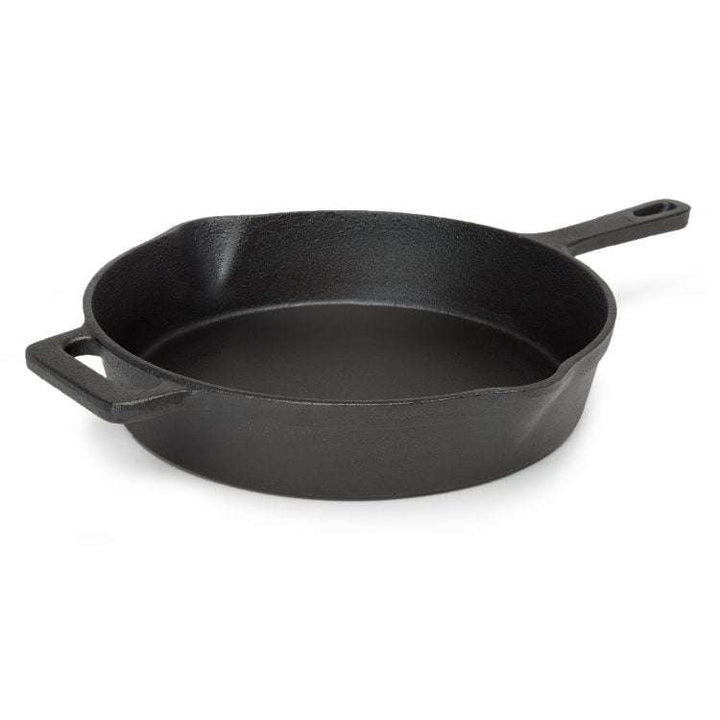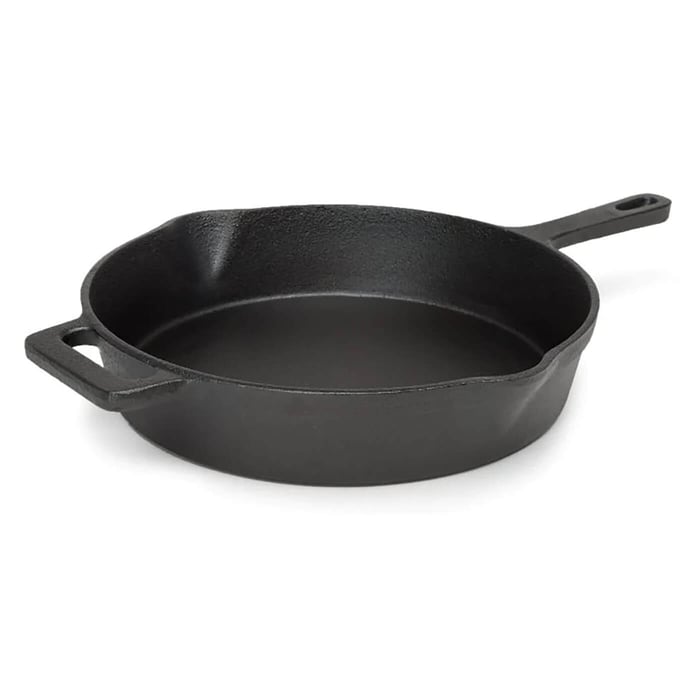Cast iron skillets are a great addition to any kitchen. They are durable, versatile, and can be used for a variety of cooking methods, including searing, sauteing, frying, and even baking. Cast iron skillets retain heat well, which means they can be used on the stovetop or in the oven. They can also be used on any type of cooktop, including gas, electric, and induction.
In order to maintain your skillet, it's important to season it properly and avoid harsh cleaning methods that can damage the seasoning. With proper care, a cast iron skillet can last a lifetime and become a cherished kitchen tool for generations to come. You might already know that this cookware has many benefits that make it a great choice for the kitchen. But did you know that you might be making some pretty common mistakes with your beloved cooking tool? To help you become aware of your mistakes and increase the durability of your cast iron cookware, we've curated a list of common mistakes the everyday home cook might be making with their beloved cast iron cookware.
Farmhouse Cast Iron Skillet - Ecolution

$26.99
Allow Ecolution's Farmhouse™ cast iron skillet to reignite your passion for cooking. Practically indestructible, cast iron has natural non-stick properties that only improve over time, offers superior heat retention and distribution and is durable enough to go from stove to… read more
The Right Way to Clean Your Cast Iron
One major and common mistake is the way that you might be cleaning your cast-iron pan. The best method of cleaning involves rinsing with warm water right away when you're done cooking. In addition to the water, you're going to want to use a little bit of baking soda. With this mixture, you should gently wash away the flavor and bacteria from your previous meal.
Don't be Afraid to Use Soap
If you find yourself with a dirty and disgusting cast-iron pan, don't be afraid to scrub it down with some dish soap. This will help that rusty skillet back to its pristine and clean look in no time. In addition to a little bit of soap, feel free to rely a bit on baking soda too, but try to stray far away from rubbing anything harsh on your cast-iron cookware.
Preheat, but Don't Overheat
When you do decide to cook with your cast iron, make sure you are always preheating the pan. If you blast the heat on it immediately, you're not allowing it to perform at it's best. Along with preheating, it's also very essential that you don't overheat your cast iron. Since the conduction efficiency of cast iron is very high, it's imperative to always start with a lower heat than what you might usually cook with.
Cook More with your Cast Iron
If you really want to reap all of the benefits of a cast-iron pan, you have to use it. With more and more use over time, your cast-iron cookware will eventually begin to thrive. The more you use it, the better your cast iron will cook. This is due to the fact that with each cook, you add new layers of oil that slowly darken and increase the taste that your cast iron provides. Don't be too worried that your cast iron is rusty, dirty or old, just clean and scrub it and get back to using it in the kitchen.


